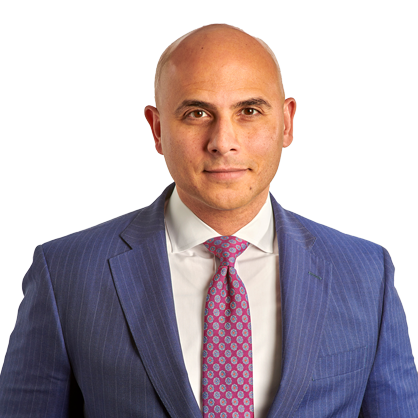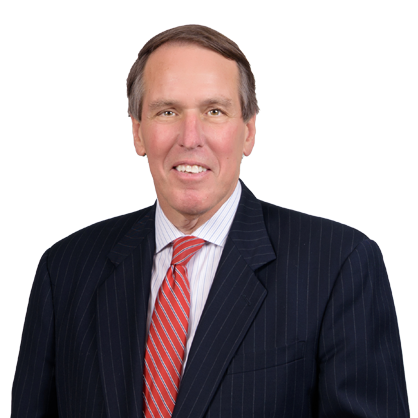Insights
Thought Leadership
White Collar Roundup - May/June Edition
Courts Bring Bridgegate Case to a Screeching Halt
On June 11, Judge Susan Wigenton of the District of New Jersey vacated the convictions of the three participants in the "Bridgegate" scandal—William Baroni, Bridget Anne Kelly and David Wildstein—finally bringing this long-running legal drama to a close.
In September 2013, during the reelection campaign of then-Governor Chris Christie, Kelly, his deputy chief of staff, along with Baroni and Wildstein, both Port Authority officials, were accused of realigning the toll lanes approaching the George Washington Bridge, causing massive traffic gridlock in nearby Fort Lee, New Jersey. The Port Authority claimed that the lane realignment was part of a traffic study. Federal prosecutors alleged that it was meant to punish the mayor of Fort Lee for refusing to endorse Christie for reelection. Wildstein cooperated with the government and pled guilty to conspiring to obtain by fraud property belonging to the Port Authority (so-called federal-program fraud) and conspiring to violate the civil rights of the residents of Fort Lee. Baroni and Kelly went to trial and were convicted of wire fraud, 18 U.S.C. § 1343; federal-program fraud, 18 U.S.C. § 666(a)(1)(A); and civil rights violations. The Third Circuit vacated the civil rights counts but otherwise affirmed Baroni's and Kelly's convictions. They convinced the Supreme Court to hear the case.
In May, the Supreme Court unanimously held in Kelly v. United States, 140 S. Ct. 1565 (2020) that Baroni and Kelly had not violated the federal-program fraud or wire fraud statutes. As Justice Elena Kagan wrote in her opinion for the Court, both federal fraud statutes require a scheme to obtain money or property. The government's theory was that Baroni and Kelly had lied about the purpose of the lane realignment and thereby obtained property, including control of the physical toll lanes and the time and labor of Port Authority employees who worked on the alleged traffic study. The Court rejected this argument, explaining that the lane realignment—even if done for improper purposes—was an exercise of regulatory power that does not qualify as taking property. Moreover, while employee time and labor may sometime qualify as property in cases where, for example, a mayor uses public employees to renovate his private residence, the time and labor of Port Authority employees in this case were incidental byproducts of the lane realignment. In sum, the Supreme Court held that Baroni's and Kelly's conduct may have amounted to abuse of power, but it did not amount to a violation of the federal criminal fraud statutes because there was no scheme to obtain money or property.
The unanimous decision, moreover, suggests that the Supreme Court remains concerned that federal criminal laws are at times being deputized to enforce standards of good governance. In a series of cases stretching back to the 1980s, the Court has sought to pare back the scope of the federal fraud statutes in cases where public officials are accused of misconduct that does not involve bribery, kickbacks or other forms of private gain. More broadly, the Bridgegate case also has the potential to alter the landscape of fraud prosecutions in cases involving intangible property.
For example, the Second Circuit recently ordered supplemental briefing to address the impact of the Supreme Court's decision on the pending appeals of several defendants accused of defrauding universities by paying bribes to steer college basketball recruits to certain programs. In the supplemental briefing, those defendants argued that the universities were not deprived of money or property, because the allocation of athletic scholarships is akin to the exercise of regulatory power over a bridge. How the federal courts resolve arguments like these will help determine whether the Supreme Court's opinion casts a shadow as long as the lines of traffic queued up on the George Washington Bridge.
Government Takes On-Ramp to Prosecuting PPP Fraud
It didn't take long. The Small Business Administration (SBA) began accepting applications for loans under the Paycheck Protection Program (PPP) in April. In May and June, at least a dozen criminal charges of PPP abuse were brought against individuals all over the country. And the government isn't holding back. In pursuit of PPP fraudsters, in addition to reviewing bank records and mining data, authorities have executed search-and-seizure warrants, recorded conversations, and rooted through suspects' trash. And many suspect that this is just the beginning.
The initial series of charges has tended to focus on instances of outright fraud. In a typical scheme, the defendant seeks a forgivable PPP loan and claims to need funds for payroll expenses generated by phantom employees. Examples of alleged fraud include:
- In the very first prosecution for PPP fraud, two men were charged in Rhode Island with fraudulently seeking more than $500,000 in PPP loans to pay employees they claimed were earning wages at four different businesses. However, according to the government, no employees were actually working for any of the businesses, three of the four businesses were not in operation prior to COVID-19 and one business did not even belong to the loan applicant.
- A Texas engineer was charged with fraudulently seeking more than $10 million in PPP loans after claiming to have 250 employees, though no employees worked for his purported business. Materials recovered from the trash outside the engineer's home included handwritten notes that appear to reflect an investment strategy for $3 million, which is the amount sought in one of his PPP loan applications.
- A man in Texas was charged with fraudulently seeking more than $5 million in PPP loans to pay his purported business's nonexistent 400 employees. According to authorities, the man tried to bolster his loan applications by submitting a list of the names of his supposed employees, names created through a random name generator available on the internet.
- A Chinese national who is a New York resident was charged with fraudulently seeking more than $20 million in PPP loans by falsely claiming to own two companies he optimistically described as "patriotic American" firms, which allegedly employed hundreds of people and paid millions in wages. According to court documents, however, the accused appears to be the sole employee of both companies.
From these not-so-humble beginnings, the government's focus quickly expanded, with additional criminal charges brought against some defendants with apparent real businesses who nonetheless diverted loan proceeds for lavish personal gain and against others who made a broader range of creative misrepresentations in securing PPP relief. Those cases, and where the government and regulators may go next, are addressed below.
50 Million Reasons for Would-Be Whistleblowers to Consider Claims
In a recent press release, the Securities and Exchange Commission (SEC) announced its largest-ever whistleblower award to a single individual—the eye-popping amount of $50 million. According to the SEC, the whistleblower had "provided detailed, firsthand observations of misconduct by a company, which resulted in a successful enforcement action that returned a significant amount of money to harmed investors." As required by law, the SEC did not name the recipient or disclose information that could reveal the whistleblower's identity.
The SEC's whistleblower program was established on July 21, 2010, under the Dodd-Frank Act as part of the reforms that followed the financial crisis. Under this program, whistleblowers may receive an award if they provide "original, timely, and credible information" to the SEC that results in a successful enforcement action with total monetary sanctions exceeding $1 million. Such awards can range from 10 percent to 30 percent of the monetary sanctions collected in SEC enforcement actions and related actions brought by other government authorities.
In the press release, the chief of the SEC's Office of the Whistleblower, Jane Norberg, stated that the nearly $50 million award had "mark[ed] several milestones for the program." Indeed, the award eclipsed the previous record to a single whistleblower of $39 million in 2018, and was just shy of the record for the highest overall award shared by two individuals that same year.
For context, as it was described in another press release, the SEC has now awarded a total of approximately $501 million to 85 individuals since issuing its first award under the whistleblower program back in 2012. Notably, the SEC has awarded more than $100 million in the current fiscal year alone. Given the recent trend toward increased awards and the clarion call to action in the form of the SEC's record-breaking $50 million award, there is little doubt the whistleblower program will play an increasing role in identifying potential fraud and elevating it squarely to the attention of the SEC enforcement staff.
Meanwhile, the PPP Prosecutions Keep Rolling In
In addition to the brazen fraud alleged in the initial spate of PPP prosecutions, described in the article above, the government has recently brought additional charges against applicants with apparent actual businesses who nonetheless make prompt personal use of their loan proceeds and, more broadly, against applicants responsible for a diverse slate of misrepresentations in securing PPP funds.
In the first scenario, a loan applicant lists a bona fide business with at least some real employees and payroll expenses on an application, but then quickly squanders many of the funds on a personal spending spree. Alleged examples include:
- Reality TV star Maurice Fayne—or, for the uninitiated, Arkansas Mo of VH1's Love & Hip Hop: Atlanta fame—was charged with fraudulently obtaining PPP loans for the benefit of his trucking company and then immediately shelling out $1.5 million of PPP funds on, among other things, a Rolls Royce, child support payments, and jewelry as inconspicuous as a Rolex Presidential watch, a diamond bracelet and a 5.73 carat diamond ring.
- A Hollywood film producer was charged with falsely representing that the $1.7 million in PPP loans he obtained would be used to pay employees of three film production and distribution companies, when instead, he put more than half the money in his personal bank account and began to pay off personal credit card debts and a car loan.
In the second, broader scenario, applicants include a range of false or greatly exaggerated employment and/or payroll information in applications for companies seeking loans. Accordingly, charges of PPP abuse were filed against:
- A Seattle area software engineer who claimed to have started companies in 2017 and 2019, which, in fact, were formed in April and had no employment expenses.
- A Chicago man alleged to have significantly overstated his companies' payroll expenses and falsified tax forms documenting nonexistent company payments.
- A Massachusetts man who allegedly misrepresented the number of employees and payroll expenses and falsely certified that his employees were based in the United States, when, in fact, they were based in India.
And even these prosecutions are just the beginning. As the government and regulators ramp up their investigatory and oversight functions, cases involving more subtle or harder-to-spot fraud will emerge. Borrowers have made and will make many representations in obtaining loans and in seeking their forgiveness, which may well be subject to review for fraud. For example, authorities have not yet filed criminal charges focused on the requirement that a PPP loan applicant certify that current economic conditions make the loan request "necessary to support the ongoing operations" of the business. The SBA has issued guidance (for instance, SBA FAQ at Question 46) generally confirming that borrowers of less than $2 million in PPP loans will be deemed to have made this particular certification in good faith. By the same token, however, it has also confirmed that all PPP loans of more than $2 million (and others) will be audited. In addition, claims brought under the False Claims Act, which allows for the recovery of government funds procured by fraud, are likely to proliferate. Such claims may be rewarded in some cases by up to treble damages and further may be pursued by private citizens, or qui tam relators, incentivized to bring suit to share in any recoveries. With the headlines that the PPP has garnered and the governmental and civil resources available to police it, not only is the program off to a surprisingly fast start in prosecutions, but it also will remain fertile ground for criminal charges and civil cases in the months and years to come.
Turning the Tables: Lawyers' Investigation of Their Clients
It has been a long-standing ethical rule that lawyers may not use their services to assist a client in perpetrating a crime. However, the criminal or fraudulent nature of any given transaction may not be so readily apparent. This uncertainty has fueled concerns that clients may seek legal assistance in furtherance of transactions that are facially legitimate, but actually support illicit objectives, such as money laundering or terrorist financing.
Recognizing this risk, the American Bar Association (ABA) recently released Formal Opinion 491, which clarifies that lawyers are obliged to investigate further when they encounter facts indicating that a client may be seeking legal advice on a transaction or other non-litigation matter in furtherance of a crime or fraud. In the parlance of the ABA, when the facts create a "high probability" that a client is seeking the lawyer's services in a transaction "to further criminal or fraudulent activity," the lawyer must inquire further. For example, as the ABA noted, a client may propose a large all-cash deal and ask that the proceeds be deposited in a jurisdiction in which transactions commonly conceal illegal activities. Sometimes, further inquiry may alleviate a lawyer's concerns. But if the client refuses to provide additional information, the lawyer generally must decline or withdraw from the representation.
The opinion formalizes a position that the ABA and many state and local bar associations have informally advocated for decades. In 1981, ABA Informal Opinion 1470 declared that "[a] lawyer cannot escape responsibility by avoiding inquiry" of suspicious matters. Since then, the Model Rules of Professional Conduct, while not explicitly establishing a duty to investigate, have laid ample foundation for such a rule by establishing lawyers' ethical obligations to communicate effectively with clients; provide legal services with honesty, competence and diligence; and, of course, refrain from assisting clients with criminal or fraudulent acts.
Notably, the opinion clarifies that a lawyer's failure to inquire further under the appropriate circumstances may itself constitute "conscious avoidance" of illegality. The opinion identifies a strong trend in favor of lawyers' duty to investigate in its review of disciplinary proceedings and ethics opinions from a range of jurisdictions. For example, the supreme courts of Florida, South Carolina and New Jersey have recently affirmed disciplinary sanctions for lawyers who "consciously avoided" knowledge of illegality by accepting their clients' representations at face value. Of course, in some cases, a lawyer's assistance in a client's unlawful activity may not only violate ethical rules, but also may constitute the basis for criminal charges.
The ABA's opinion does not impose a "freestanding blanket obligation" on lawyers to scrutinize every client request; instead, the nature of the client relationship and the context of the specific matter will inform the scope of inquiry required. That said, requests involving a new client and/or an unusual or novel transaction or series of transactions may be more likely to require lawyers to turn the tables and inquire further of their clients.
For more Day Pitney alerts and articles related to the impact of COVID-19, as well as information from other reliable sources, please visit our COVID-19 Resource Center.
COVID-19 DISCLAIMER: As you are aware, as a result of the COVID-19 pandemic, things are changing quickly and the effect, enforceability and interpretation of laws may be affected by future events. The material set forth in this document is not an unequivocal statement of law, but instead represents our best interpretation of where things stand as of the date of first publication. We have not attempted to address the potential impacts of all local, state and federal orders that may have been issued in response to the COVID-19 pandemic.



